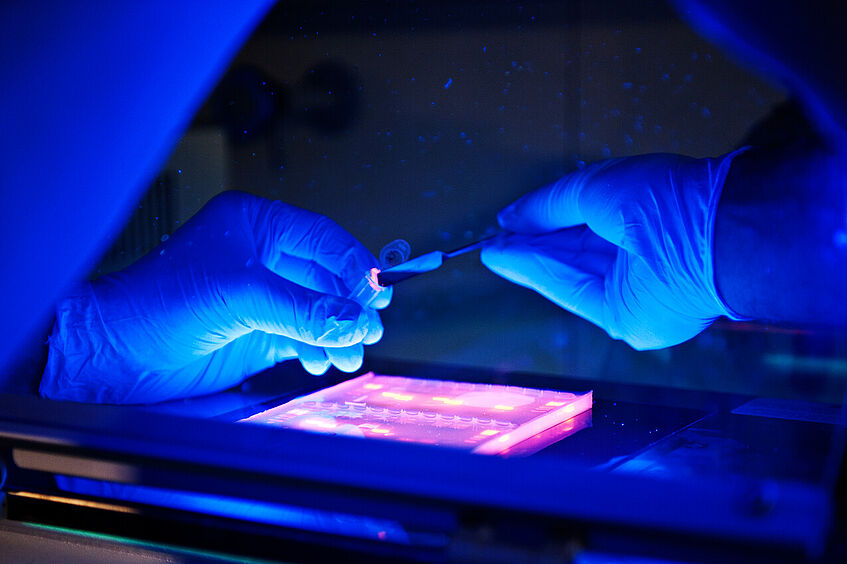Neuroscience (Master)

© University of Vienna / Barbara Mair
Modern neuroscience is developing at an unprecedented pace and is characterised by its high level of interdisciplinarity, which is especially relevant to our society. Neuroscientific knowledge is not only of particular intellectual interest to understand cognition, but it also plays an important role in the technological development of artificial intelligence. Additionally, it is of particular medical urgency, considering the increase in neurological diseases.
The aim of the master's programme in Neuroscience is to meet these new challenges through an interdisciplinary degree programme, by conveying and broadening expertise at the interfaces between molecular and cellular neurobiology, experimental and theoretical neuroscience, cognitive biology and clinical aspects of neuroscience.
Graduates have expert knowledge and practical experience enabling them to evaluate and further develop complex neurobiological phenomena at the molecular, cellular, neuronal circuit and organismic level using profound practical and theoretical basic and technical knowledge. The master's programme in Neuroscience thereby focuses on the mechanistic processes underlying behaviour and cognition, which requires a special and focused education in cellular and molecular biology, as well as in the areas and techniques mentioned above.
Master of Science
Facts & Figures
- Students: n.a.
- Graduates in the last academic year: n.a.
- Number of semesters needed for graduation (median): n.a.
Data updated on: 03.12.2024
Admission Procedure
Information about the selection procedure
Information on Previous Studies:
In any case eligible degree programmes:
- Biology (Bachelor programme at the University of Vienna) with the specialisation in
- Microbiology & Genetics OR
- Molecular Biology
Study Programme
The degree programme comprises seven compulsory modules: Fundamentals of Molecular Biology, Basic Neuroscience, Advanced Neuroscience 1 & 2, Complementary Scientific Skills for Neuroscientists, Scientific Practice and Research Proposal. Students complete the degree programme with the master’s thesis and its public defence.
Our aim is to continue to provide a research-oriented education by connecting students with local and international research groups. This makes the master's programme unique in Austria.
Five Concepts
which you will deal with during your studies:
- Neuroscience
- Molecular Biology
- Nervous Systems
- Cognitive Biology
- Neurobiological Phenomena
... and many more.
After Graduation
Their academic training and the knowledge acquired qualifies graduates to pursue a career in a wide range of occupational fields, including:
- an academic career at universities and other academic research institutions in the fields of biology and medicine;
- as project staff in biological, medical and industrial research projects;
- in the field of knowledge management, laboratory organisation and quality control;
- in the patent sector at the national and international level and in companies;
- in academic communication;
- in consulting;
- in subject-specific teaching at post-secondary educational institutions;
- in technical professions that require a high degree of analytical skills;
- in professions in the pharmacological industry.
